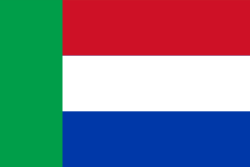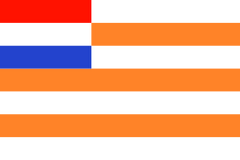http://allafrica.com/stories/200709210989.html
COLUMN21 September 2007Posted to the web 21 September 2007
Timothy Kalyegira
For most of the year since about February, something strange has come over Kampala. A city, usually warm and pleasant all year round, has taken on the chilly weather often associated with high altitude western Ugandan towns like Kabale and Fort Portal.
A few of us who enjoy sleeping nude can no longer do so. We are now experiencing the much-dreaded effects of the climate change, so long forewarned about.
GA_googleFillSlot("AllAfrica_Story_Inset");
At the beginning of August as the rainy season started, the United Nations' Food and Agricultural Organisation, in a report, spoke optimistically about the prospects for a good food harvest in several countries of West Africa.
Sure enough the rain came. But this was not rain. It was something maniacal. When you start getting 12 inches of rain in a week, it becomes the worst of nightmares. In this case, they are worst nightmares in living memory for Africa.
The casual and often quoted remarks by some politicians from northern Uganda that should the National Resistance Movement government continue to neglect the north, it will break off and form a Nile Republic, appeared to inadvertently come to reality.
Vital bridges over rivers in Acholi and Teso have been destroyed by the greatest floods in more than 60 years, if not more. Access by road to many parts of the north has become impossible. By an act of nature, a Nile Republic virtually cut off from the rest of Uganda has been created.
The government this week declared a state of emergency. (The last time such a state was declared was in December 1969 over Buganda, in the aftermath of the attempted assassination of president Milton Obote.)
Take a look at a map and see the African countries that have most been affected by the current deluge of rain: Uganda, Mali, Rwanda, Nigeria, Ethiopia, Senegal, Chad, Ghana, Sudan, Kenya, Niger, Togo, the Gambia, Burkina Faso, Guinea-Bissau, and Mauritania.
By some strange coincidence, these are the same countries that are either in the grip of civil war, are on the verge of or in a delicate state in which civil war is always possible or live in the neighbourhood of centres of conflict.
Even away from my endless talk of a seer's predictions, more conventional sources speak much the same thing. In its annual review of the year 1984, Compton Encyclopedia stated: "In 1984 famine continued to threaten millions of Africans, particularly in the southern, eastern, and Sahelian regions of the continent....The drought damaged the economies of almost half of the continent's 51 countries and contributed to further reductions in food production."
It continues: "Forecasting the situation by 2008, the UN Economic Commission for Africa warned of 'unimaginable poverty and a proliferation of shanty town full of beggars, delinquents, and job-hunters engaged in a desperate struggle for survival.'" (Compton's Yearbook, 1985, page 5).
What does all this mean?
Already, a crisis that seldom makes front-page news has been creeping upon the world. It is the rising world food prices. As world oil prices have risen and the Middle East remained unstable, there has been a move away from fossil fuels like petroleum to increasing experimentation with fuel extracted from ethanol.
Most ethanol is taken from maize, wheat, and cow dung. Because of this, a large stock of world maize (or in American English, corn) production has been diverted to the production of ethanol.
So, the world has sought to fight high oil prices and the pollution of the earth's climate by turning to cereals --- which is now, most ironically, producing a new crisis, the shortage of food and increase in world food prices.
What are the costs of this?
In Africa, 18 countries (a third of the 53 countries) have seen their harvest devastated by massive flooding. Much of the world, from Asia to Europe and North America, has also experienced abnormal heavy rains and floods, with millions of acres of farm land destroyed.
After these massive rains will obviously come an extended period of drought and dry conditions. This means that in the next two years, even the World Food Programme will start finding it difficult to raise the emergency food it needs to help stricken areas.
Relevant Links
East Africa Climate Sustainable Development Uganda
Imagine a combination of a world food shortage, high and rising world food prices, extremes of weather that is either dust or floods, then world oil prices recently reaching new record highs of more than 83 US dollars a barrel (or drum).
To all this, add the civil wars gathering steam in or near the same 18 African countries that have been treated to a Biblical Noah-like floods and suddenly (if it had not yet occurred to you, 2008) starts looking like a year of disaster with no compare.
We are about to witness the social conditions portrayed in Charles Dickens' novels or depressing urban life, with millions of people reduced to a grim, animal-like existence.
Subscribe to:
Post Comments (Atom)







No comments:
Post a Comment